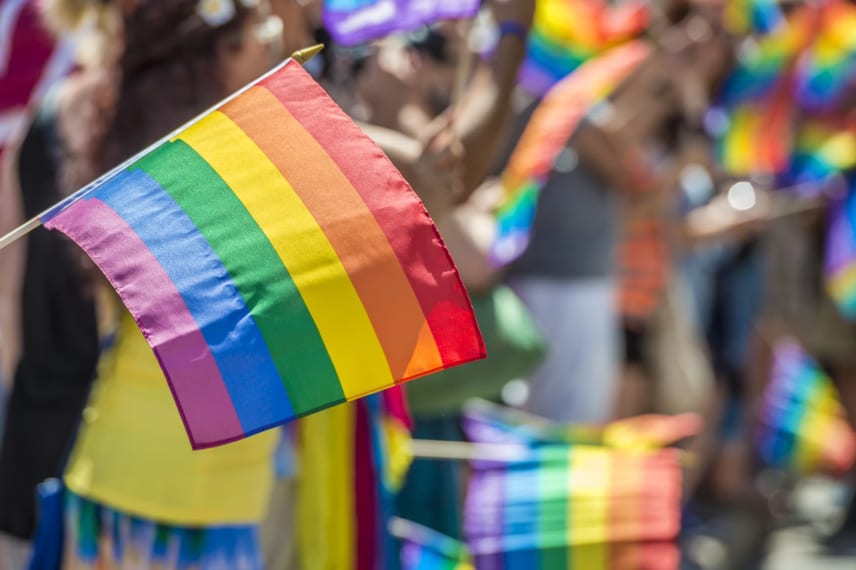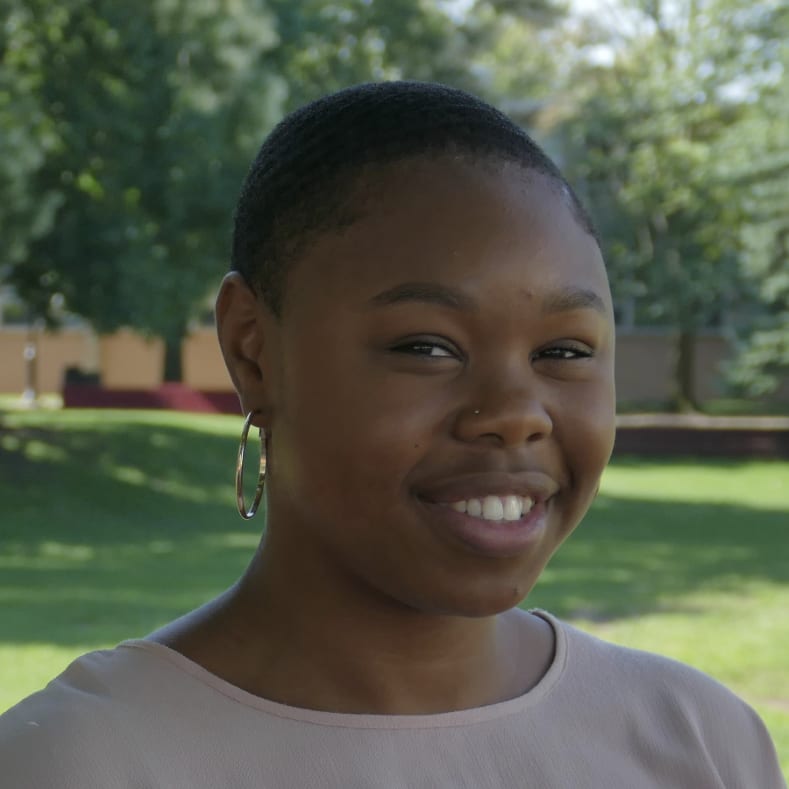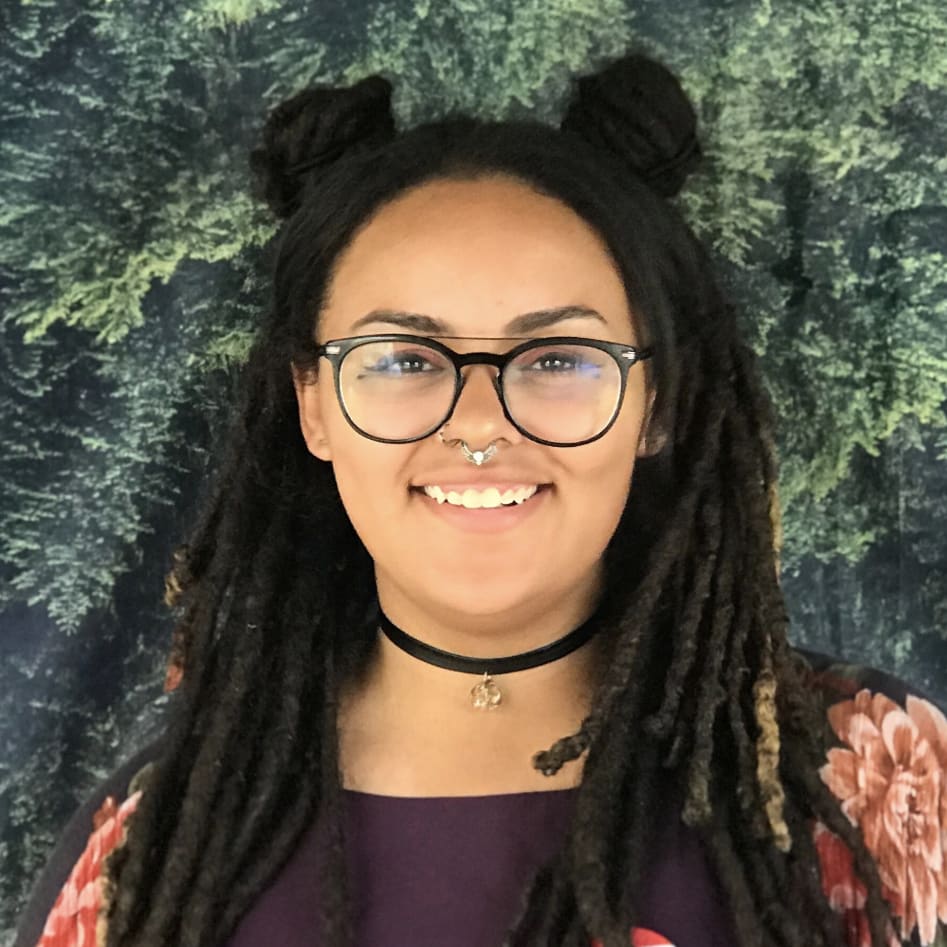
AffordableCollegesOnline.org is an advertising-supported site. Featured or trusted partner programs and all school search, finder, or match results are for schools that compensate us. This compensation does not influence our school rankings, resource guides, or other editorially-independent information published on this site.
Are you ready to find your fit?
An increasingly visible minority, lesbian, gay, bisexual, transgender, and queer (LGBTQ) students make up around 10% of undergraduate learners. Offering diverse perspectives and experiences, LGBTQ students enrich college culture and life. Cultivating an LGBTQ-friendly college culture often helps schools attract and retain LGBTQ enrollees.
This guide discusses some of the most common challenges that LGBTQ college students face, both in school and elsewhere. These challenges include coming out, mental health issues, family issues, and interpersonal violence. This guide also highlights LGBTQ learners' rights, introduces resources for LGBTQ college students, and summarizes the key features of LGBTQ-friendly college cultures.
Common Challenges for LGBTQ Students
The LGBTQ community faces many unique challenges, which can include coming-out stress, family rejection, anxiety and depression, and verbal and physical abuse. Schools should work to protect and support LGBTQ learners facing these challenges.
Some college students come out during their college years while exploring their identity and sexuality outside of the constraints of their family or community. Often a difficult process, coming out can require courage. LGBTQ college students may expend much emotional energy anticipating this decision and dealing with reactions from family and friends. This intense process can take time, energy, and focus away from college studies.
According to GLSEN's 2019 National School Climate Survey, LGBTQ learners aged 13-21 suffer disproportionately from low self-esteem and depression. Many learners also report skipping school out of fear of harassment, which clearly indicates heightened anxiety. Many LGBTQ young people feel different from the straight majority, which can contribute to social anxiety, isolation, and depression. Since learning under stress, anxiety, and depression proves difficult, these mental health issues can negatively affect learners' studies.
Unlike people of marginalized races, religions, or social classes, LGBTQ individuals do not often grow up in families that share their identity. Many LGBTQ youth face misunderstanding and rejection from their families. This lack of support often contributes to LGBTQ students' depression and isolation. Family stress and lack of support can make earning a college degree more difficult to achieve. Finding a supportive college culture and peer group often proves very important for LGBTQ youth who cannot rely on family support.
Many LGBTQ students experience physical harassment or assault. According to the GLSEN School Climate Survey, nearly 60% of students 13-21 years old report feeling unsafe at school due to their sexual orientation. Approximately 37% and 43% of LGBTQ learners feel afraid due to gender identity and gender expression, respectively. LGBTQ-friendly colleges and universities provide various policies, programs, and campus safety systems that can help protect LGBTQ enrollees.
Things to Consider When Looking for an LGBTQ+ Community on Campus
Attending an LGBTQ-friendly school can promote feelings of belonging and satisfaction. Colleges and universities often provide policies, programs, resource centers, and activities that support LGBTQ students. See below for more information on various potential resources for LGBTQ college students.
- Campus Culture
- Institutional best practices for cultivating a campus culture that supports LGBTQ students, include supporting LGBTQ student leadership and tracking LGBTQ retention. Campuses can also create LGBTQ resource centers, programs, clubs, and events. Resource centers often provide educational services, counseling, and programming that promote an LGBTQ-friendly campus culture.
- Mental Health
- Experiencing LGBTQ discrimination and prejudice often takes a toll on students' mental health. The unique stressors and pressures that LGBTQ college students experience often contribute to anxiety and depression. LGBTQ college enrollees without adequate support systems may also experience loneliness. Fortunately, many college campuses offer free or low-cost mental health counseling services.
- Community Support
- Some schools and communities offer LGBTQ mentoring programs that foster supportive, confidential, mentor-mentee relationships. These relationships function as a safe space for mentees to discuss gender identity and sexual orientation issues, thoughts, and feelings. Some colleges also offer roommate-matching or gender-inclusive housing options that offer LGBTQ students an aware, supportive community. Schools can also connect LGBTQ learners with supportive off-campus LGBTQ centers, events, and groups.
- Clubs and Extracurriculars
- LGBTQ-friendly college campuses typically offer LGBTQ clubs and various extracurricular events, programs, and activities that support community and camaraderie. Students should look for school calendars indicating gender-diverse activities such as LGBTQ performances, trips, dances, or comedy shows.
- Policies and Safety
- When choosing where to apply, prospective LGBTQ college students should consider school safety. GLSEN's 2019 National School Climate Survey highlights incredibly high rates of verbal harassment, sexual harassment, and cyberbullying of LGBTQ students ages 13-21. The report indicates that this hostile climate lowers self-esteem, GPA, and college aspirations. Schools can help combat these problems by creating and enforcing policies and programs that protect LGBTQ learners.
- Academics and Faculty
- Many schools offer LGBTQ-related majors and minors, such as gender studies, LGBTQ studies, and human sexuality. Sociology and psychology programs may also feature curriculum concentrations in these fields. Colleges and universities can support their LGBTQ populations further by hiring LGBTQ faculty and training non-LGBTQ professors on how to create a safe learning environment for LGBTQ students. Additionally, schools can attract and support marginalized learners by offering identity-based scholarships.
- Recruitment and Retention
- Fostering diverse student and faculty populations typically increases the scope, richness, and complexity of the learning environment. Colleges can attract LGBTQ applicants by sending out recruiting materials that highlight relevant campus programs, events, and activities. Schools often identify LGBTQ students by inviting learners to self-disclose their LGBTQ status on their applications.
Know Your Rights
LGBTQ college students should know the rights they hold in a higher education environment. Some federal and state laws protect LGBTQ learners, and many schools feature inclusion statements and policies that offer additional protection and support. Learn more about these resources below.
- Title IX
- Title IX of the Education Amendments of 1972 forbids sex-based discrimination in educational programs and activities that receive federal financial assistance. This regulation specifies that federally supported schools and programs cannot treat people differently, refuse them services or housing, impose sanctions or behavioral rules, or discriminate based on sex or appearance.
- Inclusion of Statements
- Inclusion statements demonstrate organizations' commitments to equality and diversity values, principles, and practices. They can help protect marginalized people by establishing an accepting, supportive organizational culture. LGBTQ students or employees can encourage organizations to substantiate their inclusion statement in various ways. Advocates can also challenge organizations for falling short of their stated values.
- State Law
- Many states have laws that protect LGBTQ students against discrimination and harassment in schools. States such as California, New York, Vermont, and Iowa offer detailed safeguards requiring local school boards to create and implement anti-harassment policies. These policies may ensure greater awareness of and consequences for LGBTQ harrassment.
- School Policy
- Many colleges and universities feature diversity, inclusion, and anti-harrassment policies that protect LGBTQ individuals and communities. LGBTQ students who experience discrimination can file internal complaints or appeals. The Campus Pride Index serves as a free benchmarking tool that schools can use to create LGBTQ-inclusive campus cultures. This online tool also helps learners and their families identify LGBTQ-friendly campuses.
Common Questions
Q. As an online LGBTQ student, how can I meet other LGBTQ students?
Enrolling in an online program can contribute to the isolation LGBTQ students feel because they aren't on campus with their peers every day. Online students who can travel to campus may consider joining LGBTQ groups so they can meet other members of the community at their school and connect with them. In some cases, schools may have virtual clubs that students can join, as well as virtual events where they can socialize with each other. Additionally, LGBTQ centers can offer advice on how to connect with other students in the community.
Q. LGBTQ students who attend school on campus can access counseling and support, but how can an LGBTQ online student find this support?
Students can generally obtain information on how to get counseling and support from their school's health center or the LGBTQ student center. They can also get in touch with The Trevor Project, which is an organization that provides a crisis and suicide hotline to LGBTQ people who need help. For more information, students can review ACO's ranking of the best LGBTQ-friendly colleges. There are also resources listed on ACO's transgender college student guide.
Q. Can online LGBTQ students access financial aid opportunities?
LGBTQ students looking for scholarships and grants may find funding in numerous places. In some cases, colleges offer scholarships specifically for the LGBTQ population. Additionally, LGBTQ organizations, like the Pride Foundation, the Queer Foundation and the Point Foundation, offer scholarship opportunities.
Q. What should I look for in a school as an online LGBTQ student?
The Campus Pride Index helps LGBTQ students find colleges and universities where they will feel welcome. Some factors the index considers are LGBTQ student policies, gender-neutral housing options, and LGBTQ campus centers.
Advice for LGBTQ College Students

Kryssa Shane
Kryss Shane (she/her) is a leading LGBTQ expert with more than 22 years of experience. She holds two master's degrees and two licenses to practice mental healthcare. Kryss travels across the U.S., working as a consultant, educator, and corporate trainer. She also appears at events and conferences as a keynote speaker, author, and writer. She is also a teaching associate at Columbia University.
Kryss has significant experience working with transgender youth, transgender military service members, and other transgender groups. Her website is ThisIsKryss.com.
Q. What areas have you noticed can be improved to make college campuses more inclusive for LGBTQ students? What can schools do to make these improvements?
It really depends on where the college is located and whether there are religious affiliations. Some schools focus on supporting a specific religion's beliefs, which can result in a lack of acceptance for the LGBTQ community.
Schools can make improvements by offering anonymous surveys for students, staff, and faculty. These surveys allow the school to learn the feelings and experiences of minority populations on campus. It's especially important to include survey questions that allow for the acknowledgement of race, disabilities, and other aspects of intersectionality that affect LGBTQ students.
Schools can also use research and speak with experts to draft ideas for improvements. In some cases, students may offer to be in a focus group to share ideas.
Q. What are LGBTQ students typically most concerned about? What advice do you give to help them navigate their college experience?
Safety is always a huge concern — both overall safety and how the community and local organizations react to and interact with the LGBTQ community. Many students also seek out information about Pride events to gauge how open they can be if they attend that school. Others ask about events that don't occur in June (typically considered “Pride Month”) because they want to know if a campus is a safe place for them all year.
Q. What are the most important things that LGBTQ college students should know?
You are valued, you are worthy, and you matter. I know this often sounds trite or cliche, but too often, young adults go into a brand new collegiate world alone, and they may feel lonely if they don't make friends immediately. Knowing how to seek out help for mental healthcare is a crucial part of adulthood and one best learned early. It's also good to know that, in the first year or even first two years, most college credits transfer, so if your first school was not the right fit, it's okay to consider finding a better fit.
Q. What resources are available at schools and in local communities to support LGBTQ college students?
Great community resources include the national and local chapters of the National Gay and Lesbian Chamber of Commerce. This organization hosts branches throughout the nation. Making connections here can lead to a sense of belonging. The Trevor Project also offers dedicated 24/7 support to LGBTQ students. Additionally, the National Suicide Prevention Helpline offers support to anyone in need 24/7.

Ebony Jackson
Ebony Jackson is the assistant director of the Office for Social Justice and Diversity at Montclair State University. She oversees the institution's LGBTQ Center. Prior to coming to Montclair State University in February 2018, she served as the coordinator of the Women's Center at Ramapo College of New Jersey. She is dedicated to social justice programming, education, and advocacy. She shapes her approach from an intersectional lens with influence from Audre Lorde's quote: "There is no such thing as a single-issue struggle because we do not live single-issue lives."
Ebony holds a BA in linguistics and an MA in counseling from Montclair State University.
Q. In what ways do you think the campus experience for LGBTQ students has improved in recent years?
Over the years, there have been efforts on college campuses to create more inclusive and affirming spaces for LGBTQ students. For example, some trends I've observed are the incorporation of LGBTQ studies (majors and minors), gender-inclusive restrooms, name change policies, training for the campus community, and LGBTQ-themed housing options.
Q. What areas do you feel still need improvement?
Some areas for improvement are the interpersonal, institutional, and systemic. Interpersonally, LGBTQ students still deal with their name and pronouns not being respected and microaggressions about their gender identity and/or sexual orientation. While some colleges have name change policies, gender-inclusive restrooms, and LGBTQ-themed housing, others don't, rendering it an institutional issue. Systemically, laws surrounding issues such as discrimination, hate crimes, gay panic defense, and gay conversion therapy aren't nationally addressed to protect the lives of LGBTQ community members.
Q. Despite the challenges they face on campus, how can LGBTQ students thrive in college?
LGBTQ students thrive on campus with understanding, support, resources, and engagement. It's critical to understand LGBTQ students' issues, interests, and needs in order to better support them. Part of that support is providing resources that address those different needs and issues. Another part of that support is interpersonal, such as friendship and community membership through student organizations, student leader positions, and Greek organizations.
Q. What on-campus services can support LGBTQ students?
Some services available at Montclair State University include an LGBTQ center, gender-inclusive restrooms, an LGBTQ and allied housing community, trans-inclusive student health insurance, trainings and workshops to educate the campus about the community, mental health resources, and a preferred name policy. Other institutions may have similar services, as well as LGBTQ-specific scholarships, counseling, and other resources.
Q. What are the most important things that LGBTQ students entering college should know?
I think the most important thing LGBTQ students should know is their prospective school's report card on LGBTQ-friendliness. It can give them an idea of what LGBTQ-specific resources and services are available. It can also provide a glimpse into what one can expect to experience during their time at that institution.

Ivy Bryan
Ivy Bryan is a New York native currently attending Brooklyn College. At Brooklyn College, she is a double major in gender studies and film studies. Ivy has a background in the music industry and music performance.
Q. As an LGBTQ college student, what has your overall experience been like?
As an LBGTQ college student, my experience has been really good. I'm very lucky that I ended up at Brooklyn College, and specifically in the women and gender studies department, which is a loving and amazing community. I hear about the horror stories from some of my friends at different colleges; I turned out very lucky.
Q. What challenges do you face as an LGBTQ student?
The biggest challenge I face as an LGBTQ student is the lack of women and gender studies classes. It feels like each semester there are fewer and fewer classes available in the women and gender studies department. I think as a person in the LGBTQ community, it's important that we have the opportunity to learn about our culture.
Q. Do you feel the college you attend is supportive of the LGBTQ community on campus?
Brooklyn College is very supportive of the LGBTQ community, and I appreciate it. There are often LGBTQ gatherings throughout the semester, and we have an LGBTQ space now.
Q. Are there areas where your school can improve its efforts to support the LGBTQ community?
I wish my school was more public about what they offer for LGBTQ students on their website. For all the accommodations they have at my school, I found out about them through word of mouth. That's something that I feel would have been useful to know when I was applying to colleges.
Q. What advice would you give to other LGBTQ college students?
The advice I would give to other LGBTQ students is to make sure that you find an LGBTQ space, club, or group at your school. Having that kind of a support system helps you feel like yourself and more comfortable throughout your college experience.
Resources for LGBTQ College Students
The five organizations below work to reduce violence and discrimination against LGBTQ youth and students. Joining these organizations can help LGBTQ students access scholarships, leadership development opportunities, resources, and advocacy. Some organizations also offer volunteer, internship, and employment opportunities.
Campus Pride
A volunteer-driven network of student leaders, this national nonprofit organization helps protect LGBTQ college students. Campus Pride offers supportive programs, services, and resources for LGBTQ college students.
Gay and Lesbian Advocates and Defenders
A non-governmental organization, GLAAD monitors media, fights the negative portrayal of the LGBTQ community, sparks dialogue on related issues, and advocates for greater acceptance.
Human Rights Campaign
The largest LGBTQ advocacy group in the U.S., HRC advocates for equality under the law and helps combat LGBTQ human rights attacks.
Point Foundation
This foundation provides scholarships that support LGBTQ students demonstrating academic promise. The Point Foundation also offers mentorship, internship, and community service opportunities.
The Trevor Project
This national nonprofit organization offers crisis intervention and support for LGBTQ individuals. The organization conducts research, runs programs, and hosts speakers.
Keep up with the latest
Never miss a detail on the news, trends, and policies that could directly impact your educational path.
Best Master's in Data Analytics Programs: What You Need to Know
Top Online MBAs in Business Analytics
Explore the top online MBAs in business analytics, including tuition costs, curricular offerings, and more with this student research resource.
Scholarships and Financial Aid in Texas
Financial aid makes college a reality for many students. Learn about the top scholarships in Texas and how you can earn one.
AffordableCollegesOnline.org is an advertising-supported site. Featured or trusted partner programs and all school search, finder, or match results are for schools that compensate us. This compensation does not influence our school rankings, resource guides, or other editorially-independent information published on this site.
Do this for you
Explore your possibilities- find schools with programs you’re interested in and clear a path for your future.